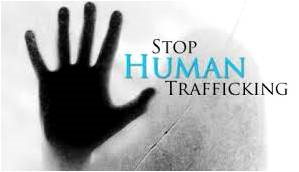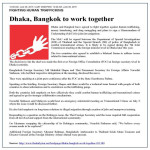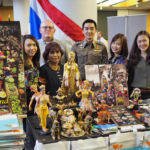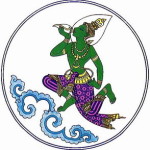
Thailand’s government took several significant steps last week in its campaign to eradicate human trafficking, including setting up anti-trafficking centers in 37 provinces, banning youths under 18 years old from Laos from entering the Kingdom unless escorted by an adult, rounding up illegal migrants from Myanmar and holding coordinating meetings with civil society and with private sector members of the fishing industry.
The government also released its annual Trafficking in Persons Country Report. The 164-page document details the strategies and tactics, laws and policies, and enforcement measures the government has taken to combat trafficking during the past year. The report closes with a section outlining concrete actions by the government in response to recommendations made by the United States to Thailand in its own annual Trafficking in Persons Report.
The Ministry of Social Development and Human Security ordered governors in 37 provinces considered most at risk for human trafficking to set up anti-trafficking centers to work on solving the problem, especially in relation to women and children. As trafficking is a complex problem, it requires actions that fall under the purview of several ministries and agencies. Establishing anti-trafficking centers should allow better and more centralized coordination of efforts at the provincial level. Each governor will serve as the chairperson of his province’s center.
The 37 provinces are on the country’s borders or those that contain many ‘entertainment complexes. The centers will be tasked to carry out the ministry’s operations covering victim identification, strict law enforcement against traffickers, protection of victims, and arranging for female investigators and interpreters to facilitate investigation into trafficking cases.
Thai Immigration authorities have also begun barring people under 18 years of age from Laos from entering Thailand unless escorted by an adult. Over the past 15 years, 2,217 Lao victims of human trafficking have been rescued from Thailand and repatriated. Between 75 and 80 percent were under 18 years old and 95 percent were female, according to recent information from the Lao Ministry of Labor and Social Welfare. Most were trapped in the sex industry.
Last week, a combined team of police and soldiers intercepted a convoy of eight cars containing 54 illegal Myanmar migrant workers in Ayutthaya province and arrested the eight Thai drivers transporting them to Bangkok. Police are investigating to try and determine who organized the smuggling of the workers.
At the policy level, Deputy Minister of Foreign Affairs Don Pramudwinai convened two meetings to discuss and coordinate anti-trafficking approaches and efforts. The first meeting was with private sector operators and associations in the fishing industry, which has come under intense criticism for using trafficked migrant workers and abusing them.
The second meeting was with nongovernmental organizations and other members of civil society working on the trafficking issue. The Deputy Minister stressed the important role that the civil society has been playing in informing the authorities, proposing ideas and solutions, helping with investigations and providing services to victims. The meeting aimed to establish a platform for closer cooperation between the government and civil society.
More information on Thailand’s progress and actions against human trafficking is available at www.thaianti-humantraffickingaction.org.




